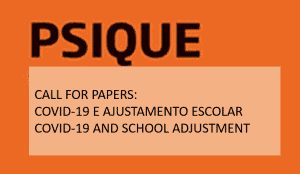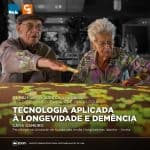Special Issue Information
Dear Colleagues,
Family is the first and most important context in which children develop, shaping their well-being and outcomes as adults. Promoting the well-being and positive development of children is a political priority and a means to break the cycle of disadvantage for those growing up in adverse environments, as well as to enhance social cohesion. One of the main challenges for researchers and practitioners working with families is to know which forces, both negative and positive, drive and determine children's well-being, how they interact among themselves and how to intervene effectively to minimize risk and strengthen internal and external resilience factors.
Family factors, including the quality of parenting and family relations, play a crucial role in children's early lives and their developmental pathways, for better or for worse. Adequate parenting requires the coordination of parenting goals, styles and strategies to convey coherent expectations and values to their children, as well as the ability to communicate, cooperate and manage conflicts. Understanding how best to intervene to support parents is a key challenge. Thus, there is a strong need to expand our knowledge on how to reduce risk factors and to promote protective environments.
This Special Issue addresses this topic by inviting scholars to share their findings, perspectives and approaches, with the aim of promoting positive parenting, improving family relations and, ultimately, ameliorating child well-being. Qualitative or quantitative contributions from basic or applied research with the potential to advance the current knowledge in this field are welcomed.
Dr. Cristina Nunes
Guest Editor
Manuscript Submission Information
Manuscripts should be submitted online at www.mdpi.com by registering and logging in to this website. Once you are registered, click here to go to the submhttps://www.mdpi.com/ission form. Manuscripts can be submitted until the deadline. All submissions that pass pre-check are peer-reviewed. Accepted papers will be published continuously in the journal (as soon as accepted) and will be listed together on the special issue website. Research articles, review articles as well as short communications are invited. For planned papers, a title and short abstract (about 100 words) can be sent to the Editorial Office for announcement on this website.
Submitted manuscripts should not have been published previously, nor be under consideration for publication elsewhere (except conference proceedings papers). All manuscripts are thoroughly refereed through a single-blind peer-review process. A guide for authors and other relevant information for submission of manuscripts is available on the Instructions for Authors page. healthcare is an international peer-reviewed open access monthly journal published by MDPI.
Please visit the Instructions for Authors page before submitting a manuscript. The Article Processing Charge (APC) for publication in this open access journal is 1800 CHF (Swiss Francs). Submitted papers should be well formatted and use good English. Authors may use MDPI's English editing service prior to publication or during author revisions.
Keywords
- children
- well-being
- parenting
- positive parenting
- family relations
- family support
- evidence-based interventions
- risk factors
- protective factors



